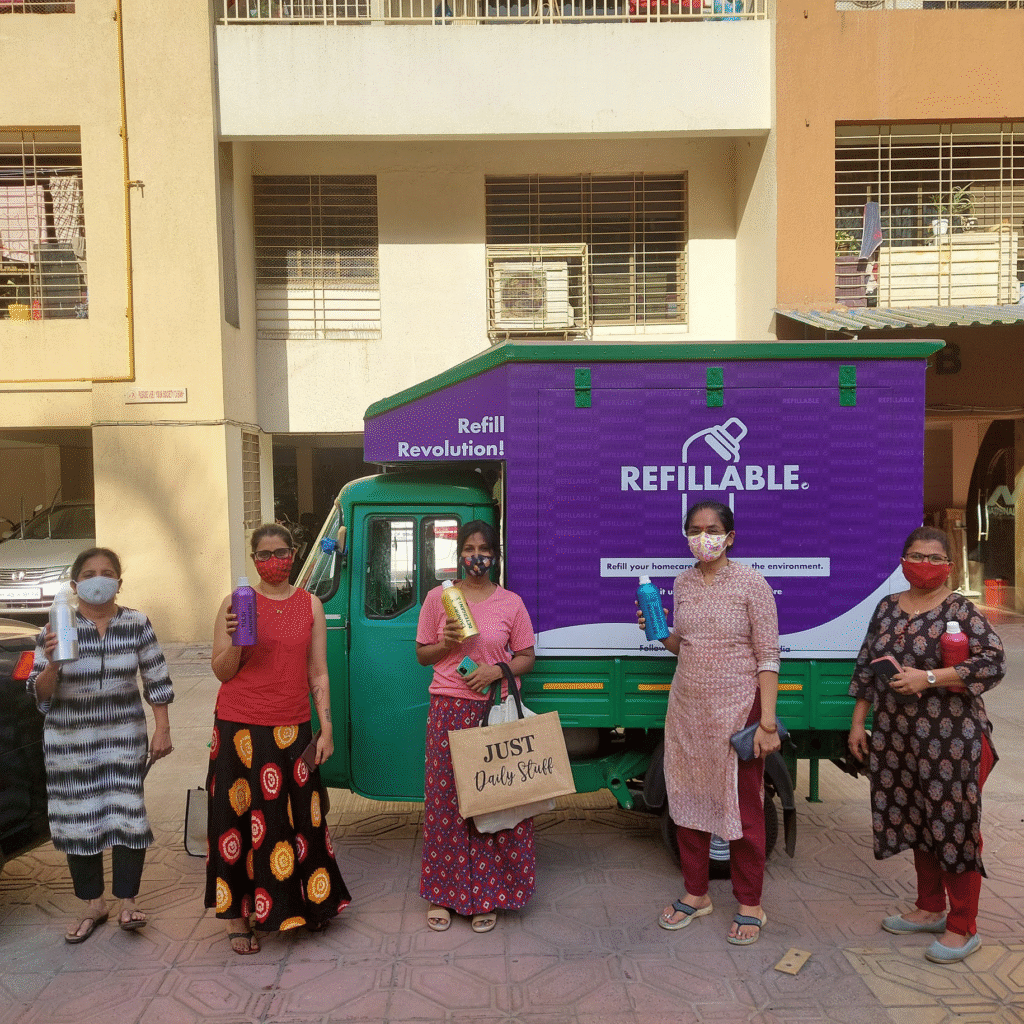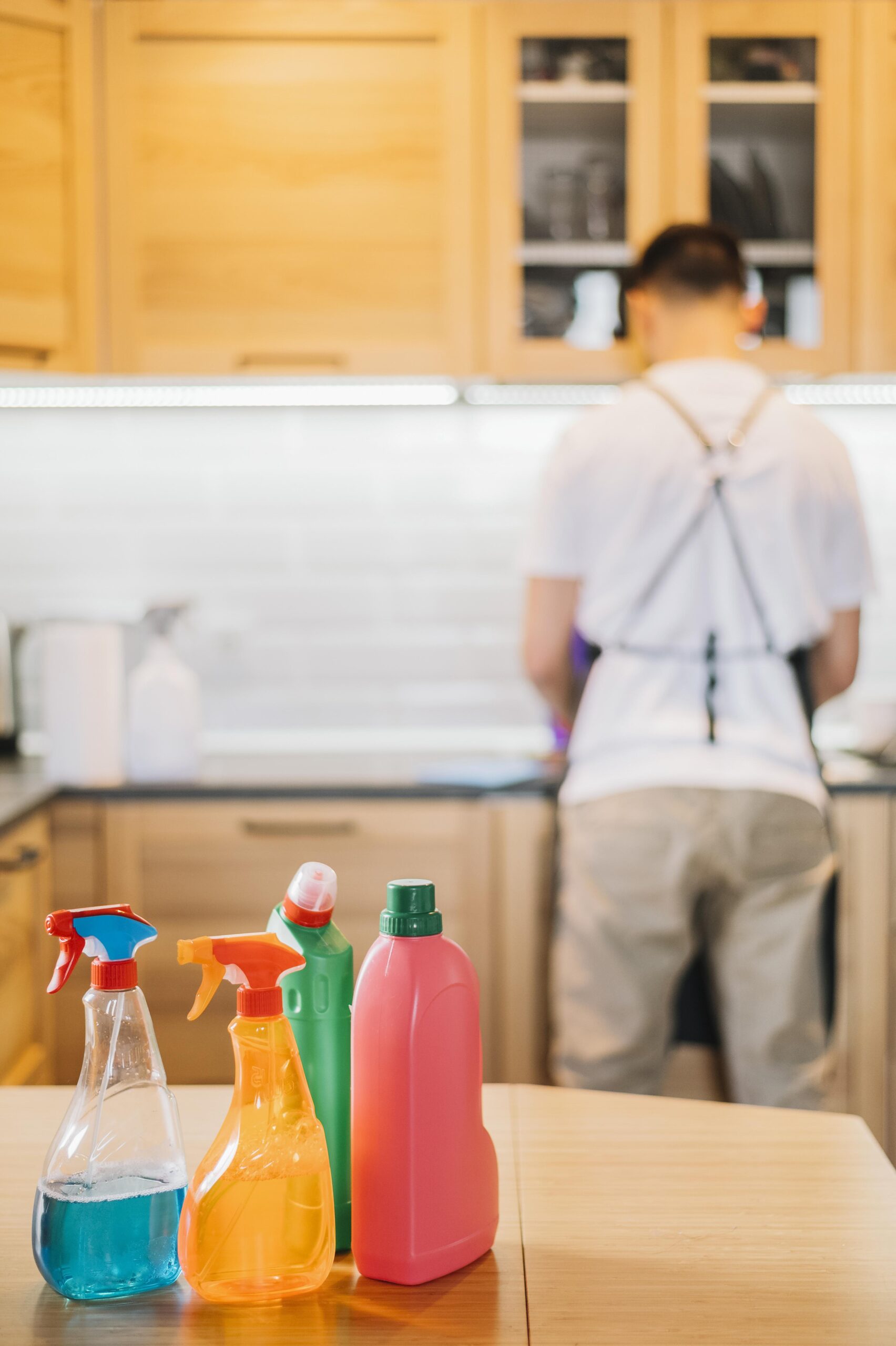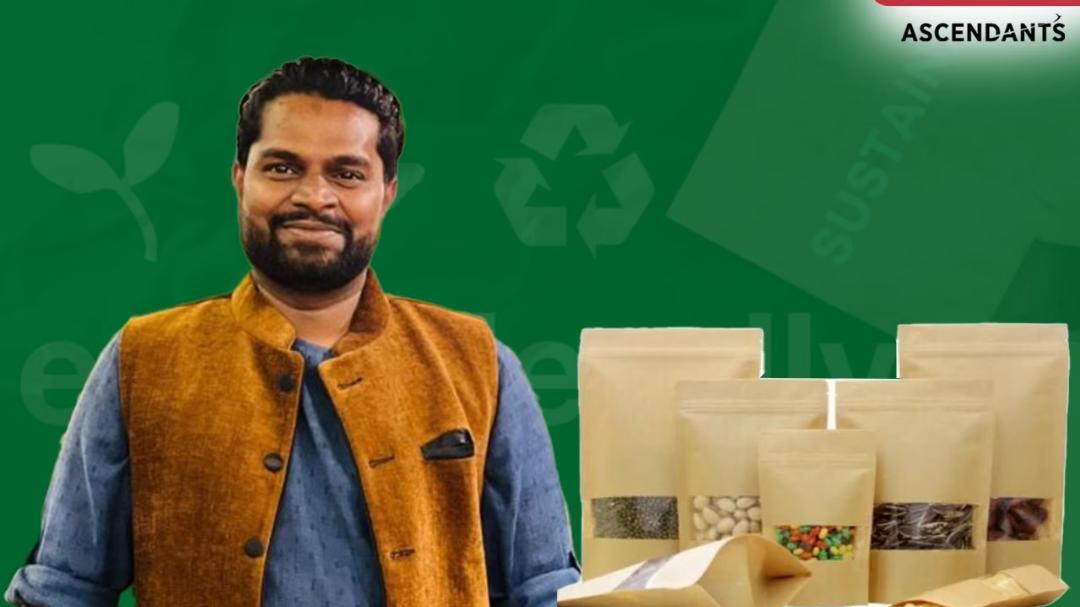As India continues to fight the rising tide of plastic pollution, a quiet revolution is taking place across its urban landscape. The idea of refill stations for household cleaners is gaining traction as a smart, sustainable alternative to traditional packaging. These refill points allow people to bring their own bottles and refill essential products like dishwashing liquid, hand wash, floor cleaners, and detergents—reducing plastic waste while promoting affordability and conscious consumption.
This innovation reflects a growing shift in Indian startup stories toward sustainability and circular economy models. From eco-friendly startups developing reusable packaging systems to refill stores empowering communities, this movement is transforming how everyday Indian households consume cleaning products.
What Are Refill Stations for Household Cleaners?
Refill stations are physical outlets or automated vending systems that allow customers to refill their cleaning product containers instead of buying new plastic bottles every time. Consumers simply carry an empty bottle, clean it, and refill it with products like glass cleaners, toilet cleaners, surface disinfectants, or multi-purpose cleaners.
By doing so, they save money, reduce single-use packaging, and actively support India’s sustainability goals. Many refill stores also expand their offerings to other eco-friendly household products, creating a one-stop destination for conscious consumers. These refill points represent a forward-thinking, sustainable solution one that resonates with India’s growing class of environmentally aware families and entrepreneurs.
Why Refill Stations Matter in India’s Sustainability Journey
India generates more than 3.5 million tons of plastic waste annually, and a large share comes from single-use packaging especially from household cleaning products. Each Indian household goes through dozens of plastic bottles every year, most of which end up in landfills or oceans.
Refill stations for household cleaners directly address this challenge. They promote reuse over replacement, encourage circular consumption habits, and help households save costs in the long term. For many urban and semi-urban families, these stations offer a way to live sustainably without compromising on cleanliness or convenience.
This model also fits perfectly within the narrative of eco-friendly startups in India, which are reimagining how products are made, sold, and consumed. As startup stories continue to evolve in the sustainability sector, refill stations stand as an inspiring example of innovation meeting environmental responsibility.

The Rise of Refill Stations in Indian Cities
The concept of refill stations for household cleaners has already found enthusiastic supporters in major Indian metros such as Bengaluru, Mumbai, Delhi, and Pune. Local eco-stores, sustainable living outlets, and even some supermarkets are now incorporating refill models into their business operations.
Brands like Green Mantra and Eco Store in Bengaluru are among the early adopters, offering customers a simple, economical way to refill cleaning liquids. Customers bring their containers, refill them by volume or weight, and pay only for the product, not the packaging. The process is quick, clean, and cost-effective.
This growing adoption also shows how Indian startup stories are increasingly centred around community-driven, sustainable innovations. Many of these refill stores are small eco-friendly startups or cooperatives supporting local manufacturers, thereby strengthening India’s green business ecosystem.
How Do Refill Stations Work?
Using refill stations for household cleaners is incredibly simple. Here’s how it typically works:
- Bring your own clean, empty container (many stations also offer cleaning services before refilling).
- Choose the cleaning product you need dishwashing liquid, floor cleaner, or bathroom disinfectant.
- The store measures the quantity you refill, calculates the cost, and you pay per liter or per gram.
The process takes just a few minutes, and some stores even offer digital billing or refill-tracking through apps. Automated refill vending machines are also being tested in certain residential complexes and office spaces, further enhancing convenience and accessibility.
The simplicity and affordability of this model make it attractive for families seeking practical sustainability. While many people assume eco-friendly choices are expensive, refill stations prove otherwise. For instance, a bottle of branded liquid cleaner costing ₹90 per litre can be refilled for ₹60 at a refill point—resulting in significant savings over time.
Economic and Environmental Benefits
The benefits of refill stations for household cleaners extend beyond personal savings. Environmentally, the impact is massive. Each refill potentially prevents 50 to 100 plastic bottles from being produced and discarded annually. Multiplied by thousands of households, this leads to a considerable reduction in plastic waste and carbon emissions.
Economically, refill models create localised business opportunities. Many refill stations are owned by small entrepreneurs or community cooperatives, promoting a circular economy where local businesses thrive. These stations often source from Indian eco-friendly startups, which manufacture sustainable cleaning solutions in bulk. This partnership strengthens local economies, reduces logistics-related emissions, and encourages conscious consumption patterns.
The model aligns seamlessly with the circular economy principles: reuse, recycle, and reduce. By extending the lifecycle of packaging and minimising waste, refill stations contribute to India’s broader vision of sustainable urban development.
Overcoming Challenges and Building Trust
Despite the promising potential, the adoption of refill stations for household cleaners in India faces certain challenges. The foremost concerns are hygiene and awareness.
Many consumers still perceive refilling as less hygienic, fearing contamination from reused bottles or dispensers. However, most refill stations maintain strict sanitisation standards, including bottle sterilisation and product safety checks. Educating customers through transparent communication, in-store hygiene demonstrations, and social media storytelling can build trust and awareness.
Another major barrier is limited consumer awareness. Many people simply don’t know that such refill options exist. Here’s where eco-friendly startups and local entrepreneurs can play a key role—by leveraging digital marketing, collaborations with sustainability influencers, and startup storytelling platforms to reach eco-conscious audiences. Government support in the form of standardisation and incentives could also accelerate this green transition.
How You Can Get Started with Refill Stations
Adopting the refill lifestyle is easier than it sounds. Here’s a quick guide:
- Find a nearby refill station: Use online directories, Google Maps, or eco-store apps to locate one near your home or office.
- Collect reusable bottles: Label them for different cleaners like dishwashing liquid, floor cleaner, or toilet cleaner.
- Start small: Refill one or two products initially. Once you get comfortable, gradually switch more household cleaners to refill mode.
- Spread awareness: Encourage friends, neighbors, and family to join in. Small community efforts often lead to big changes.
This small lifestyle change not only saves money but also helps create cleaner cities and supports eco-friendly startups that are reshaping India’s retail and sustainability sectors.
The Future of Refill Stations in India
The future of refill stations for household cleaners in India looks bright. As awareness grows and technology improves, these refill points could become as common as grocery stores. The entry of Indian startups into this domain will further enhance innovation, think of smart refill vending machines, doorstep refill services, and mobile refill vans.
Several Indian startup stories are already emerging around this concept. Founders are building app-based solutions to track refill history, offer loyalty rewards, and integrate digital payments for convenience. Government and corporate initiatives supporting sustainability are expected to amplify this growth by encouraging businesses to adopt bulk refill systems.
Moreover, large FMCG brands are beginning to experiment with refill-friendly packaging, while housing societies and corporate offices explore community refill programs. With continued innovation, eco-conscious policies, and citizen participation, refill stations could soon become a mainstream element of India’s sustainable living movement.
The Role of Eco-Friendly Startups in Driving Change
India’s eco-friendly startups are playing a vital role in scaling this green revolution. From manufacturing biodegradable cleaning agents to designing efficient refill systems, startups are infusing creativity and technology into sustainability.
Platforms that share Indian startup stories like Startup Ki Story, YourStory, and Inc42 have begun spotlighting these innovators. By narrating their journeys, these platforms are helping startups gain visibility and public trust, motivating more entrepreneurs to enter the sustainability space.
Such stories not only celebrate innovation but also inspire behavioural change. When consumers see real examples of eco-friendly startups successfully running refill stations and generating profit while reducing waste, they’re more likely to participate in the movement.
A Step Toward a Cleaner and Smarter India
The concept of refill stations for household cleaners goes beyond reducing plastic; it’s about reshaping consumer behaviour and building a sustainable economy. It blends affordability, convenience, and environmental consciousness in a single model that benefits both the planet and the people.
As India embraces a greener future, refill stations represent a beacon of possibility. They reflect the resilience and creativity seen across numerous Indian startup stories, where entrepreneurs and communities are collaborating for a cleaner tomorrow.
Whether you’re a conscious consumer or an aspiring entrepreneur, now is the perfect time to be part of this eco-friendly transformation. Every refill counts not just as an act of sustainability but as a contribution to India’s growing ecosystem of eco-friendly startups and circular economy champions.
So next time you run out of a household cleaner, skip the new plastic bottle. Head to a refill station instead. You’ll save money, reduce waste, and become part of a powerful movement toward a smarter, cleaner India.





